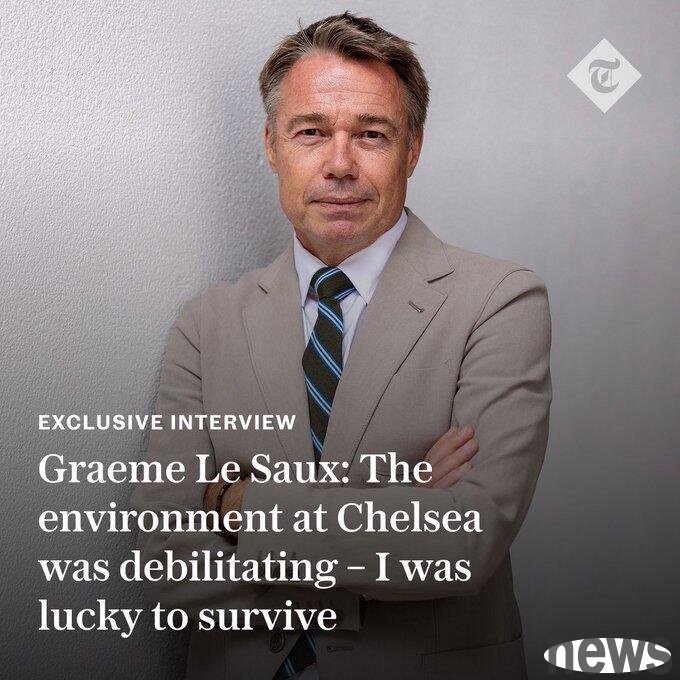
Former Chelsea and England defender Graeme Lesox recently revealed the cruel truth about the Stamford Bridge locker room in the player era. 56-year-old Lesox played for the Blues twice in 1987-1993 and 1997-2003. He pointed out that there was a culture of xenophobia, gang formation and even bullying in the team at that time, especially for "unsociable" players, and the club had no obligation to care for young players.
In an exclusive interview with the Daily Telegraph, Ransox admitted: "The environment in Chelsea at that time was extremely harsh, and it was physically and mentally exhausted in many ways. There was no care at the training base, only the worst ridicule. They regarded the cultivation of stress resistance as an excuse for abuse, and in the name of this was honing you."
The former England international won the Premier League championship with Blackburn in 1995, revealed that bullying often begins with harmless personal traits, such as reading the Guardian, or traveling with a male friend on a European railway in a summer. He recalled that his teammate Andy Townsend (playing for Chelsea in 1990-1993) had picked up his newspaper and joked that "there is no sports version on it", which caused everyone to burst into laughter.
Rexx said: "I know Andy is smart, and as a core figure in the locker room, his behavior disappointed me even more. Later he proved that it was not his nature, but that was it in the locker room at that time."
Although heterosexual, married and married and having two sons, Rasex suffered a long-term homophobic humiliation in his career. This malice spread from the court to the stands, which made him always play football with fear when he was young.
He said: "If it weren't for the experience of losing my mother by a teenager, I might not be able to hold on. I was so sad that I was numb. The football environment in that era was full of hostility, and the rogue behavior and insults in the stands were even more naked. People were accustomed to this, and I chose to resist. Although I paid the price, I was glad to finally survive."
In the 1999 Premier League match, Liverpool player Robbie Fowler made a dirty gesture toward Lessox, triggering a wave of homophobic slogans on the stands and pushing this bullying to the top. Fowler apologized in disguise in an interview in 2014. Lessox said he had accepted: "That's enough, I made mistakes, such as the bad foul on Danny Mills. Later, I wrote to admit that no matter whether it was personal grudges, the tackle broke out. He respected my apology, and of course he would still be tit-for-tat next time."
Despite his pain, Lessox always took pride in maintaining his true self: "I insist on being myself. The self-awareness established during growth gave me resilience to defend my true nature, which was not deliberately creating an image."
He also cherished the warm moment of the second-hand Chelsea. He was awarded the key qualifying match for Liverpool in the Champions League 2-1, May 2003, and he was named the best in the game. This victory paved the way for Abraham to take the lead.
Now as an NBC commentator and co-founder of AI Football Analysis, Ransox looks at the future of football, but he believes that the current open environment could have made himself better: "Modern football is more inclusive and focused on learning and development. This culture will make me a better player."